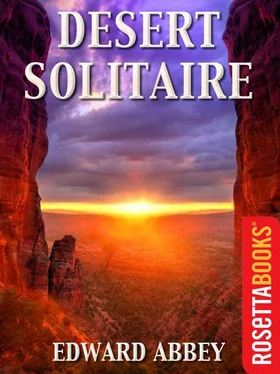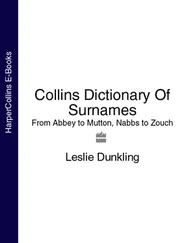Abbey, Edward - Desert Solitaire (Edward Abbey Series )
Здесь есть возможность читать онлайн «Abbey, Edward - Desert Solitaire (Edward Abbey Series )» — ознакомительный отрывок электронной книги совершенно бесплатно, а после прочтения отрывка купить полную версию. В некоторых случаях можно слушать аудио, скачать через торрент в формате fb2 и присутствует краткое содержание. Год выпуска: 2011, Издательство: RosettaBooks, Жанр: Старинная литература, на английском языке. Описание произведения, (предисловие) а так же отзывы посетителей доступны на портале библиотеки ЛибКат.
- Название:Desert Solitaire (Edward Abbey Series )
- Автор:
- Издательство:RosettaBooks
- Жанр:
- Год:2011
- ISBN:нет данных
- Рейтинг книги:4 / 5. Голосов: 1
-
Избранное:Добавить в избранное
- Отзывы:
-
Ваша оценка:
- 80
- 1
- 2
- 3
- 4
- 5
Desert Solitaire (Edward Abbey Series ): краткое содержание, описание и аннотация
Предлагаем к чтению аннотацию, описание, краткое содержание или предисловие (зависит от того, что написал сам автор книги «Desert Solitaire (Edward Abbey Series )»). Если вы не нашли необходимую информацию о книге — напишите в комментариях, мы постараемся отыскать её.
Desert Solitaire (Edward Abbey Series ) — читать онлайн ознакомительный отрывок
Ниже представлен текст книги, разбитый по страницам. Система сохранения места последней прочитанной страницы, позволяет с удобством читать онлайн бесплатно книгу «Desert Solitaire (Edward Abbey Series )», без необходимости каждый раз заново искать на чём Вы остановились. Поставьте закладку, и сможете в любой момент перейти на страницу, на которой закончили чтение.
Интервал:
Закладка:
Even after years of intimate contact and search this quality of strangeness in the desert remains undiminished. Transparent and intangible as sunlight, yet always and everywhere present, it lures a man on and on, from the red-walled canyons to the smoke-blue ranges beyond, in a futile but fascinating quest for the great, unimaginable treasure which the desert seems to promise. Once caught by this golden lure you become a prospector for life, condemned, doomed, exalted. One begins to understand why Everett. Reuss kept going deeper and deeper into the canyon country, until one day he lost the thread of the labyrinth; why the oldtime prospectors, when they did find the common sort of gold, gambled, drank and whored it away as quickly as possible and returned to the burnt hills and the search. The search for what? They could not have said; neither can I; and would have muttered something about silver, gold, copper—anything as a pretext. And how could they hope to find this treasure which has no name and has never been seen? Hard to say—and yet, when they found it, they could not fail to recognize it. Ask Everett Reuss.
Where is the heart of the desert? I used to think that somewhere in the American Southwest, impossible to say exactly where, all of these wonders which intrigue the spirit would converge upon a climax—and resolution. Perhaps in the vicinity of Weaver’s Needle in the Superstition Range; in the Funeral Mountains above Death Valley; in the Smoke Creek Desert of Nevada; among the astonishing monoliths of Monument Valley; in the depths of Grand Canyon; somewhere along the White Rim under Grandview Point; in the heart of the Land of Standing Rocks. Not so. I am convinced now that the desert has no heart, that it presents a riddle which has no answer, and that the riddle itself is an illusion created by some limitation or exaggeration of the displaced human consciousness.
This at least is what I tell myself when I fix my attention on what is rational, sensible and realistic, believing that I have overcome at last that gallant infirmity of the soul called romance—that illness, that disease, that insidious malignancy which must be chopped out of the heart once and for all, ground up, cooked, burnt to ashes… consumed. And for so long as I stay away from the desert, keep to the mountains or the sea or the city, it is possible to think myself cured. Not easy: one whiff of juniper smoke, a few careless words, one reckless and foolish poem— The Wasteland , for instance—and I become as restive, irritable, brooding and dangerous as a wolf in a cage.
In answer to the original question, then, I find myself in the end returning to the beginning, and can only say, as I said in the first place: There is something about the desert.… There is something there which the mountains, no matter how grand and beautiful, lack; which the sea, no matter how shining and vast and old, does not have.
Minor points on the same issue: I like horses. There is no place for horses on the ocean; and in the mountains you will learn that mules, generally speaking, are more useful. Also, of course, the people: though rare as radium you find, if you can find them, a superior breed in the deserts—consider the Bedouin, the Kazaks and Kurds, the Mongols, the Apaches, the Kalahari. Mountain people tend to become inbred and degenerate, get goiters, and no one for a long time has lived in the sea. As for those others, the wretched inhabitants of city and plain, can we even think of them, to be perfectly candid, as members of the same race?
Revealing my desert thoughts to a visitor one evening, I was accused of being against civilization, against science, against humanity. Naturally I was flattered and at the same time surprised, hurt, a little shocked. He repeated the charge. But how, I replied, being myself a member of humanity (albeit involuntarily, without prior consultation), could I be against humanity without being against myself, whom I love—though not very much; how can I be against science, when I gratefully admire, as much as any man, Thales, Democritus, Aristarchus, Faustus, Paracelsus, Copernicus, Galileo, Kepler, Newton, Darwin and Einstein; and finally, how could I be against civilization when all which I most willingly defend and venerate—including the love of wilderness—is comprehended by the term?
We were not communicating very well. All night long we thrashed the matter out, burning up half a pinyon pine in the process, transforming its mass into energy, warmth, light, and toward morning worked out a rough agreement. With his help I discovered that I was not opposed to mankind but only to man-centeredness, anthropocentricity, the opinion that the world exists solely for the sake of man; not to science, which means simply knowledge, but to science misapplied, to the worship of technique and technology, and to that perversion of science properly called scientism; and not to civilization but to culture.
As an example of scientism he suggested the current superstition that science has lengthened the human life-span. One might as well argue that science, meaning technology, has actually reduced the average man’s life expectancy to about fifteen minutes—the time it takes an ICBM to cover the distance between the U.S.S.R. and the U.S.A. The superstition, my visitor pointed out, is based on a piece of trickery, statistical sleight-of-hand: e.g., in a primitive culture without modern medical techniques, perhaps half of all the babies born die within the first year of infancy; the remainder survive and live for the normal, usual seventy years; taking the total born and dividing by the number of full-lived survivors, the statistician announces that the average life expectancy at birth for the members of this hypothetical society is thirty-five years. Confusing life expectancy with life-span, the gullible begin to believe that medical science has accomplished a miracle—lengthened human life! And persist in believing it, even though the Old Testament, written more than three thousand years ago, refers to “three score and ten” as being the typical number of years allotted to mortal man. The heroes, naturally, lived far longer, and not in that condition of medicated survival found in a modern hospital where the patient, technically still alive, cannot easily be distinguished from the various machines to which he is connected. But this is now familiar stuff, common knowledge—why kick around a dead horse? Far more interesting is the distinction to be made between civilization and culture.
Culture, we agreed, means the way of life of any given human society considered as a whole. It is an anthropological term referring always to specific, identifiable societies localized in history and place, and includes all aspects of such organizations—their economy, their art, their religion. The U.S.A., for example, is not a civilization but a culture, as is the U.S.S.R., and both are essentially industrial cultures, the former in the mode of monopoly capitalism, the latter in the mode of state socialism; if they seem to be competing against each other it is not because they are different but because they are basically so much alike; and the more they compete the more alike they become: MERGING TRAFFIC AHEAD.
Civilization on the other hand, while undoubtedly a product of various historical cultures, and as a category one which overlaps what we label culture, is by no means identical with culture. Cultures can exist with little or no trace of civilization; and usually do; but civilization while dependent upon culture for its sustenance, as the mind depends upon the body, is a semi-independent entity, precious and fragile, drawn through history by the finest threads of art and idea, a process or series of events without formal structure or clear location in time and space. It is the conscious forefront of evolution, the brotherhood of great souls and the comradeship of intellect, a corpus mysticum , The Invisible Republic open to all who wish to participate, a democratic aristocracy based not on power or institutions but on isolated men—Lao-Tse, Chuang-Tse, Guatama, Diogenes, Euripides, Socrates, Jesus, Wat Tyler and Jack Cade, Paine and Jefferson, Blake and Burns and Beethoven, John Brown and Henry Thoreau, Whitman, Tolstoy, Emerson, Mark Twain, Rabelais and Villon, Spinoza, Voltaire, Spartacus, Nietzsche and Thomas Mann, Lucretius and Pope John XXIII, and ten thousand other poets, revolutionaries and independent spirits, both famous and forgotten, alive and dead, whose heroism gives to human life on earth its adventure, glory and significance.
Читать дальшеИнтервал:
Закладка:
Похожие книги на «Desert Solitaire (Edward Abbey Series )»
Представляем Вашему вниманию похожие книги на «Desert Solitaire (Edward Abbey Series )» списком для выбора. Мы отобрали схожую по названию и смыслу литературу в надежде предоставить читателям больше вариантов отыскать новые, интересные, ещё непрочитанные произведения.
Обсуждение, отзывы о книге «Desert Solitaire (Edward Abbey Series )» и просто собственные мнения читателей. Оставьте ваши комментарии, напишите, что Вы думаете о произведении, его смысле или главных героях. Укажите что конкретно понравилось, а что нет, и почему Вы так считаете.












